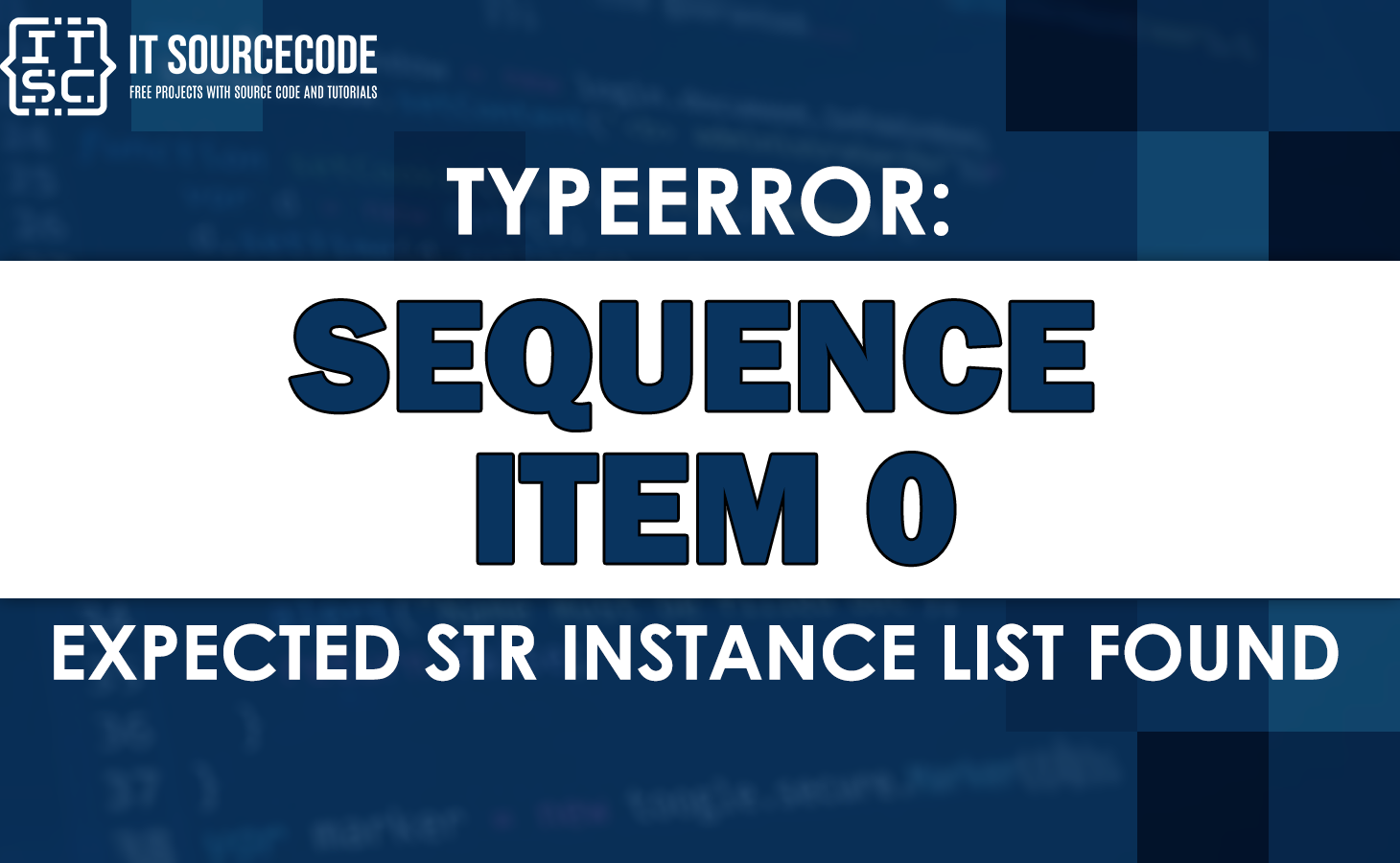In this article, we will deal with Typeerror sequence item 0 expected str instance list found.
We will also provide example codes of how this error occurs and solutions to help you solve the error quickly.
But before that let’s understand first what kind of error this is.
What is Typeerror sequence item 0 expected str instance list found?
The “TypeError: sequence item 0: expected str instance, list found” occurs every time we call the join() method with an iterable that includes one or more list-objects.
Here is how the error occurs:
my_list = [['i', 't'], ['s', 'c']]
# TypeError: sequence item 0: expected str instance, list found
result = ''.join(my_list)If we run this code this will output the following:
Traceback (most recent call last):
File "C:\Users\Windows\PycharmProjects\pythonProject\main.py", line 4, in <module>
result = ''.join(my_list)
TypeError: sequence item 0: expected str instance, list foundHow to fix the Typeerror sequence item 0 expected str instance list found
Here are the following solutions to fix the error sequence item 0 expected str instance list found.
1. Use a generator expression with a nested join()
One way to fix the error sequence item 0 expected str instance list found by using the generator expression with nested join().
When we call the join() method along with the nested list, this will join the strings.
Furthermore, the generator expressions are utilized to perform an operation for every element or select a subset of elements that meet a condition.
Here is the example code:
my_list = [['i', 't'], ['s', 'c']]
result = ''.join(''.join(l) for l in my_list)
print(result)Output:
itsc
2. Convert each value to a string.
This time if the nested list has non-string values, all the items should be converted into a string.
my_list = [[1, 2], ['it', 'sc']]
result = ''.join(''.join(map(str, l)) for l in my_list)
print(result) Output:
12itsc
3. Join the nested lists into a string
Conversely, if we want to join the nested list into a string we are going to pass each to the str() class.
Here is an example:
my_list = [['i', 't'], ['s', 'c']]
result = ''.join(str(l) for l in my_list)
print(result)Output:
[‘i’, ‘t’][‘s’, ‘c’]
4. Access the string element inside the list by specifying its index:
If the list contains a nested list or other data type, you can access the string element inside the list by specifying its index.
In this way, you can extract the string element from the list and use it where a string is expected.
Example code:
my_list = ['it', 'source', ['code']]
my_string = my_list[2][0]
print(my_string)
Output:
code
Additional way to fix sequence item 0 expected str instance list found
The string the method is called on is used as the separator between elements.
my_list = ['it', 's', 'c']
my_str = '-'.join(my_list)
print(my_str)Output:
it-s-c
If you don’t need a separator and just want to join the iterable’s elements into a string, call the join() method on an empty string.
my_list = ['it', 's', 'c']
my_str = ''.join(my_list)
print(my_str) Output:
itsc
Conclusion
In conclusion, the “TypeError: sequence item 0: expected str instance, list found” occurs every time we call the join() method with an iterable that includes one or more list-objects.
We hope you have learned about this topic and configured your error at the same time.
If you are finding solutions to some errors you might encounter we also have Typeerror object of type float32 is not json serializable.
Thank you for reading!

